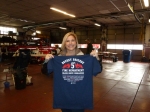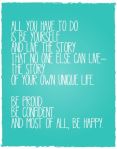![]() ToxicMomToolkit.com, the blog, was started in 2009 as I began to write my memoir, Toxic Mom Toolkit. I started the blog as a place to be found by others who also struggle with having super toxic mothers. I needed a place to ask questions, create community, and a platform to conduct Totally Unscientific Surveys, like how many others survived the wooden spoon. (No way! You too?)
ToxicMomToolkit.com, the blog, was started in 2009 as I began to write my memoir, Toxic Mom Toolkit. I started the blog as a place to be found by others who also struggle with having super toxic mothers. I needed a place to ask questions, create community, and a platform to conduct Totally Unscientific Surveys, like how many others survived the wooden spoon. (No way! You too?)
With a lot of author friends, I knew that writing a book can be isolating. What started as a one- or two-year project grew into a three-year slog that taught me why so many writers drink. I put on weight. I chopped off my hair. I took four months to write two pages on sexual abuse. It was a laugh riot at my kitchen table in Petaluma, California, let me tell you.
By 2013, after a year of editing and listening to Test Readers, I decided to self-publish on Amazon. A very famous New York City agent, (who hadn’t spoken to her own mother for over 30 years) told me I’d be crazy not to. She pointed out that I had grown my own readers by letting people peek at the process through Facebook, Pinterest and this blog.
Along the way, I haven’t always been on track with blogging. Not that it’s hard for me; it’s just one extra thing. I was looking for a way to improve my attitude about blogging when WordPress.com offered an online course called Blogging 101. Lesson Number One? Introduce yourself.
 And since I’ve been blogging for a long time, that seemed sort silly until I remembered something I learned in the newsroom.
And since I’ve been blogging for a long time, that seemed sort silly until I remembered something I learned in the newsroom.
When assignments are being handed out, there is sometimes a real “groaner” story on an annual bake sale or the fire station blood drive, or deer hunting season. I forget the specific story, but I remember letting out a long groan once over a story like that. An editor took me aside.
“Write it for the person who moved here yesterday,” he said with a pat on my shoulder.
Newspapers cover small town parades, hunting season and blood drives every year and if you see it as a reporting opportunity instead of a drag, your story will be richer. When I blog, I should always remember the new person who just Googled: “terrible mother” or ” toxic parent” while crying over the keyboard, who landed here.
So, if Blogging 101 said introduce yourself, I’m going to do that – and more. I’m also going to tell you what I’m working on (in addition to blogging) – next.
 I am currently at work on a second book about going no contact. The working title is Toxic Mom Toolkit: The Final Plan. I’m guessing it will take about six months, which probably means at least a year and certainly another bad haircut just when it’s grown out long enough for a French twist. In the New Year I would also like to do some work to produce something for the sons of toxic mothers. Hint-hint: I’m looking for guys ready to tell their stories to me.
I am currently at work on a second book about going no contact. The working title is Toxic Mom Toolkit: The Final Plan. I’m guessing it will take about six months, which probably means at least a year and certainly another bad haircut just when it’s grown out long enough for a French twist. In the New Year I would also like to do some work to produce something for the sons of toxic mothers. Hint-hint: I’m looking for guys ready to tell their stories to me.
Through my blog I know that there are so many people out there just waiting for an opportunity to contribute to the collective knowledge on this topic. The first brave story contributors (all women) led the way, and I hope that the 7% of our male community feels ready to tell their stories this year.
And I’ll be blogging about it – more often that usual – so please sign up to get email notices when new blog posts go up.


















